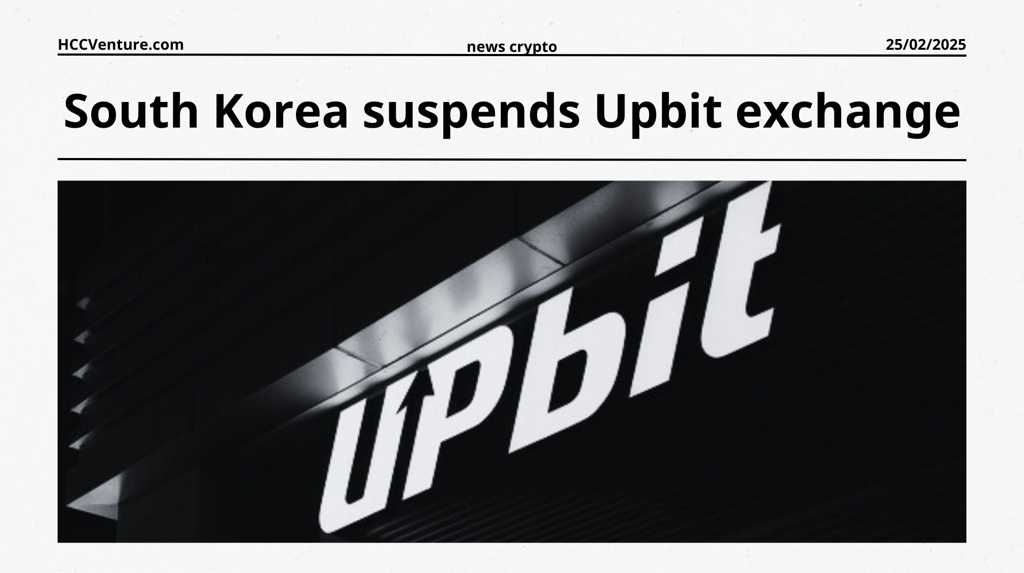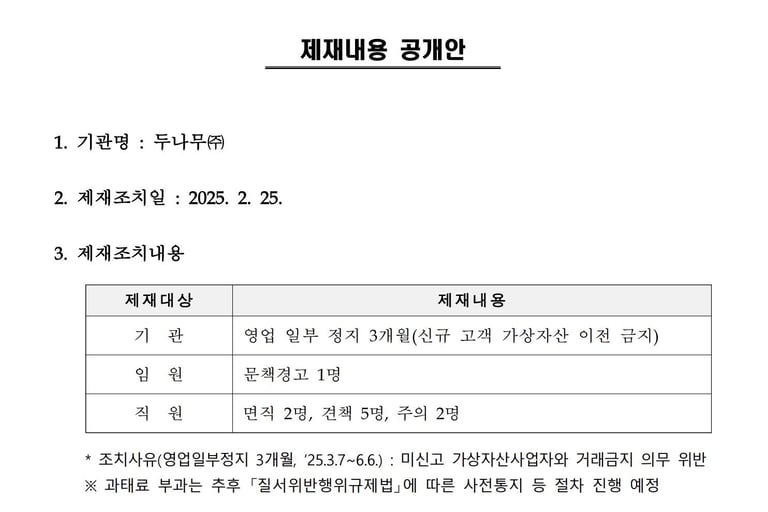South Korea Punishes Upbit: Suspends New Account Openings for 3 Months for Violating Regulations
The Financial Intelligence Unit (FIU) of South Korea has banned the Upbit exchange from opening new accounts for three months, from March 7 to June 6, 2025, due to violations of Know Your Customer (KYC) and Anti-Money Laundering (AML) regulations. This event could have a strong impact on the cryptocurrency market in South Korea and open up opportunities for rival exchanges.
2/25/20252 min read


On February 25, 2025, the South Korean Financial Intelligence Unit (FIU) decided to suspend the opening of new accounts on the cryptocurrency exchange Upbit for 3 months, from March 7 to June 6, 2025.
The decision was made after it was discovered that Upbit had conducted 44,948 transactions with 19 unregistered crypto asset service providers (CASPs) from August 28, 2022 to August 23, 2024, in violation of South Korean law.
In addition, the FIU also discovered many serious violations in Upbit's Know Your Customer (KYC) and Anti-Money Laundering (AML) compliance processes. Specifically, from October 6, 2021 to September 30, 2024, the exchange processed 34,477 identity verification requests but made many errors, such as accepting black and white copies of ID cards, using screenshots instead of original documents, and not fully verifying customer information. This resulted in 15,496 customers being able to trade without full verification.


Upbit Suspension and Determination Document
Furthermore, 5,785 customers were approved without proper address verification, of which 3,545 continued to trade without completing verification. From October 6, 2021 to August 15, 2023, Upbit skipped the driver's license security code check, resulting in 67,684 customers being allowed to trade without sufficient authentication information. The FIU also pointed out that Upbit did not require customers to update their KYC upon expiration, resulting in 9,066,244 re-verifications without valid documents, of which 3,121,761 accounts continued to trade despite expired verification information.
Upbit's anti-money laundering controls were found to be lax, failing to prevent unusual transactions, such as depositing large amounts of cryptocurrency and then immediately selling it for cash, or depositing large amounts of fiat to buy crypto and then immediately transferring it to another platform. Notably, Upbit failed to report 15 suspicious transactions, despite receiving an investigation warrant from law enforcement.
In response to the decision, Upbit apologized to customers for the inconvenience and emphasized that the suspension only applies to new customers; existing users can still fully enjoy the services. The exchange also said it is actively working with the authorities to review the ban and may make changes through appropriate legal procedures.
Upbit is currently the largest cryptocurrency exchange in South Korea, accounting for more than 80% of the domestic crypto trading market, with a 24-hour trading volume of more than $5.1 billion. This sanction could have a major impact on Upbit's business, creating opportunities for rival exchanges such as Bithumb, Coinone, and Korbit to attract investors.
South Korea is known for its strict cryptocurrency regulations, only granting licenses to qualified exchanges. South Korean citizens registering an account on domestic exchanges must provide ID and complete a KYC process before being allowed to trade.
Explore HCCVenture group
HCCVenture © 2023. All rights reserved.

Connect with us
Popular content
Contact to us
E-mail : sp_contact@hccventure.com
Register : https://linktr.ee/holdcoincventure
Disclaimer: The information on this website is for informational purposes only and should not be considered investment advice. We are not responsible for any risks or losses arising from investment decisions based on the content here.


TERMS AND CONDITIONS • CUSTOMER PROTECTION POLICY
ANALYTICAL AND NEWS CONTENT IS COMPILED AND PROVIDED BY EXPERTS IN THE FIELD OF DIGITAL FINANCE AND BLOCKCHAIN BELONGING TO HCCVENTURE ORGANIZATION, INCLUDING OWNERSHIP OF THE CONTENT.
RESPONSIBLE FOR MANAGING ALL CONTENT AND ANALYSIS: HCCVENTURE FOUNDER - TRUONG MINH HUY
Read warnings about scams and phishing emails — REPORT A PROBLEM WITH OUR SITE.
